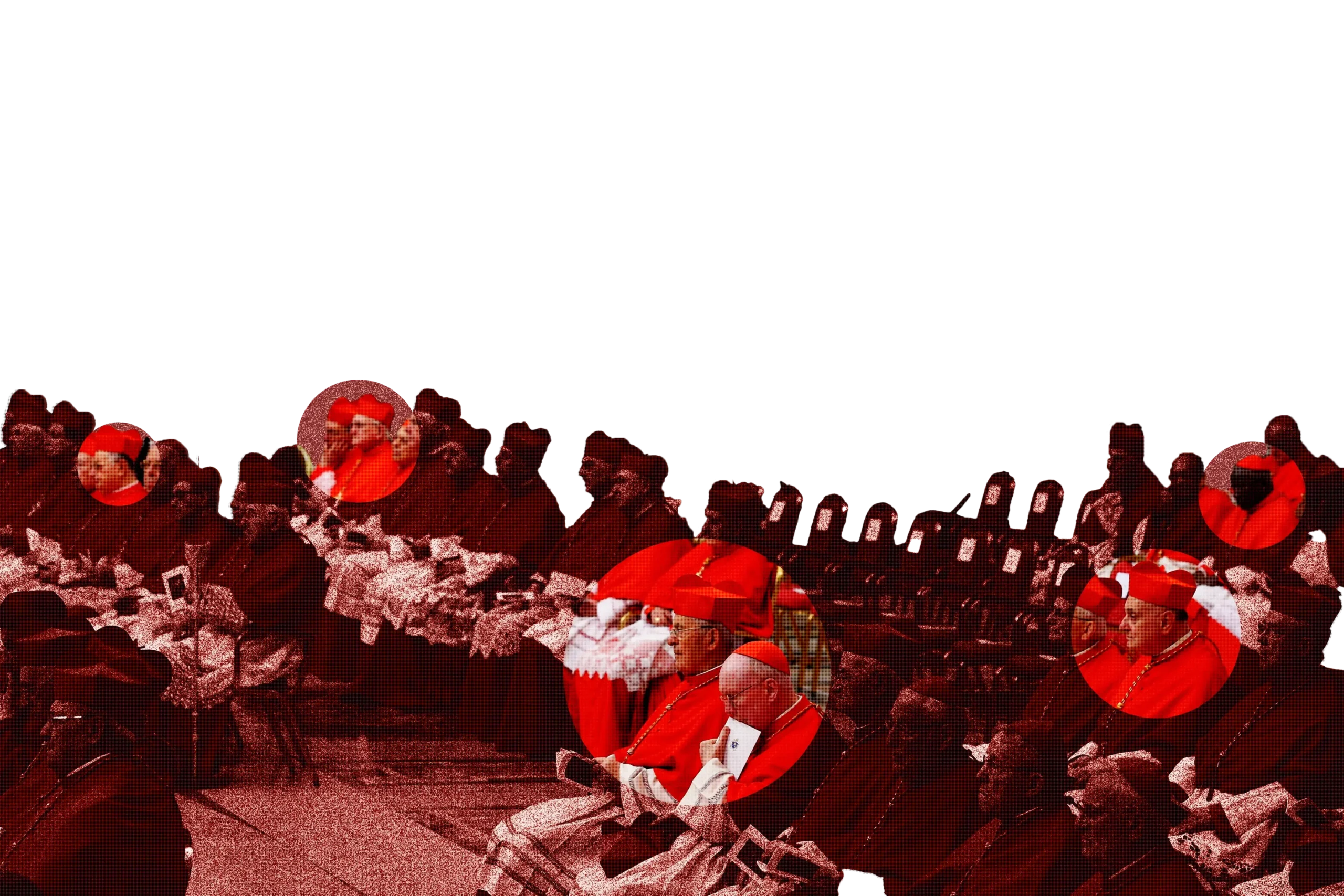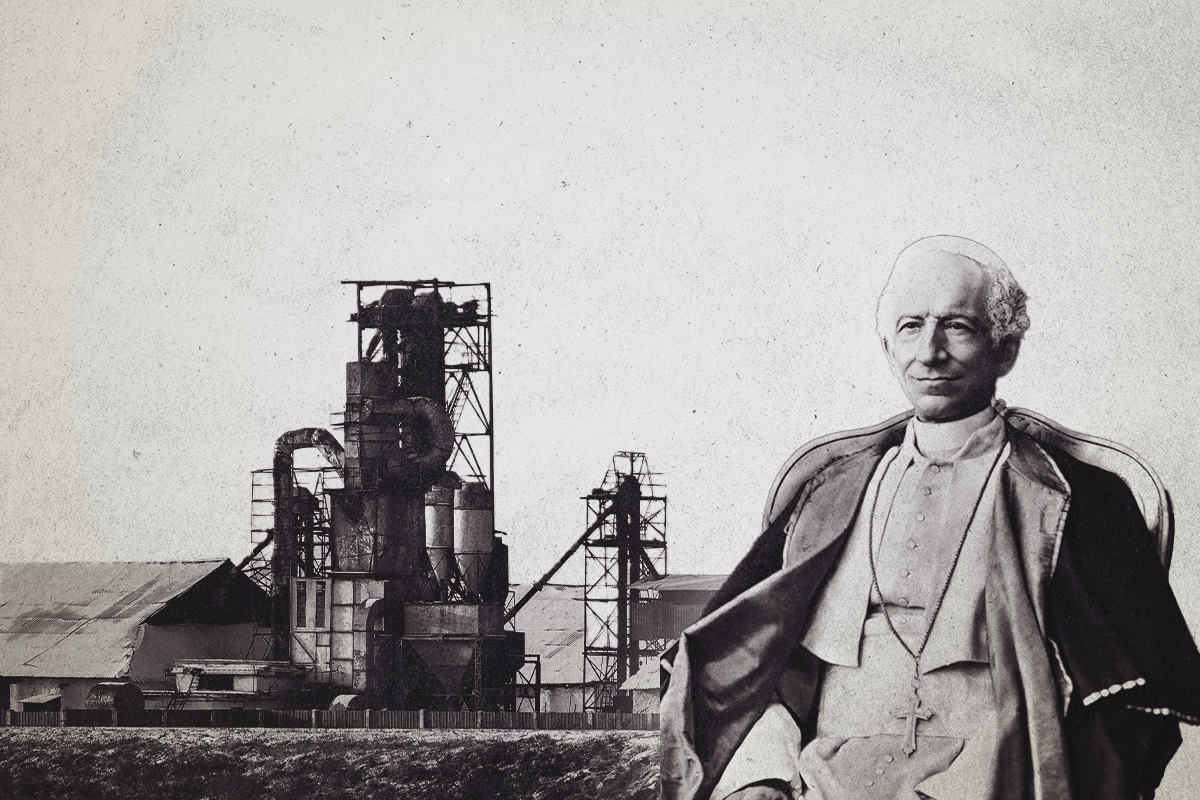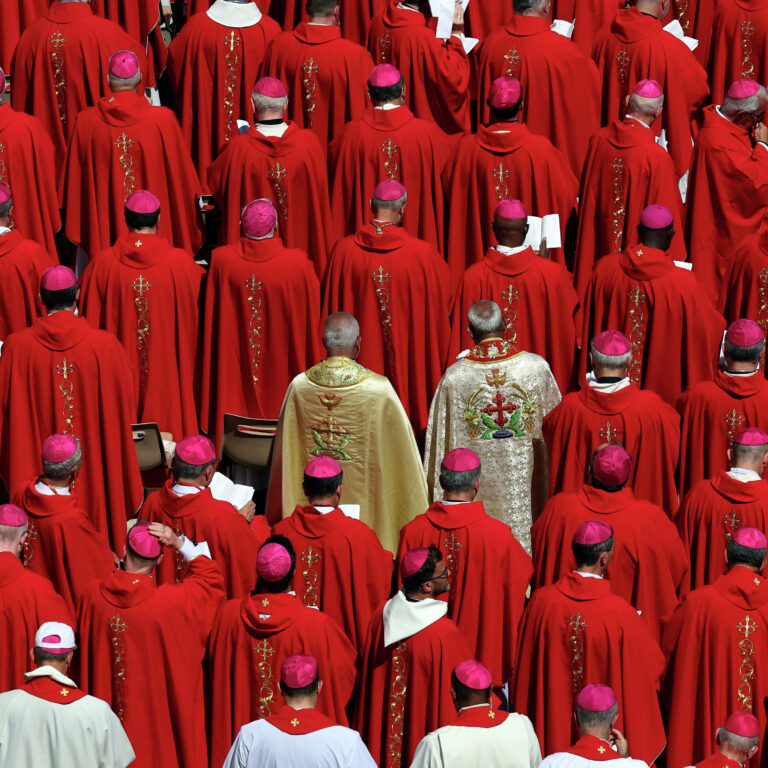Why the Vatican’s Response to the Industrial Revolution Still Matters
The Industrial Revolution changed more than just how goods were made. It changed how people worked, how they lived, and even how they saw themselves. Although it may seem like a distant chapter in a history textbook, the questions raised during the Industrial Revolution are similar to the questions we wrestle with today: What is the value of human work? Where do I find meaning in a job? How can I live a life of dignity in a system that often seems impersonal and profit-driven?
Long before the rule of machinery over our lives, the Vatican was already thinking deeply about these questions. As industrialization reshaped society in the 19th century, the Catholic Church stepped in not just to criticize but to imagine a different kind of economy: one built around the Catholic understanding of the human person.
The vision took shape under Pope Leo XIII in 1891 with his groundbreaking encyclical Rerum novarum. At a time when factories were booming but workers were suffering, Pope Leo saw something that’s still true today: when technology moves faster than morality, people get left behind.
Pope Leo offered not just a critique, but a hopeful view of the future. Pope Leo called for an economy where people mattered more than profit, where work wasn’t just about survival, but accounted for purpose. He asserted that human dignity cannot be lost amidst the noise of progress. Still today, many of us are entering a world of work that feels just as uncertain and dehumanizing as it did 150 years ago. The tools are different, the conditions undeniably better, but the questions remain.
Back then, one major shift was that labor became a commodity, something to be bought and sold. Before industrialization, work was often tied to relationships and communities. But factories changed all that. Suddenly, people were valued mostly for how much they could produce, not for who they were. Today, you can feel like you’re only as good as your latest metric, your productivity, or your follower count.
Another major consequence of Industrialization is that cities became overcrowded as people rushed toward factory jobs. Existing infrastructure, designed for a more agrarian age, couldn’t keep up. These newly-minted urban workers lived in cramped, unsanitary conditions, disconnected from nature and each other. And while we may have Wi-Fi and running water now, many young adults still feel isolated, overburdened by living costs, and burned out living in fast-paced urban economies.
Pope Leo XIII saw these problems and responded by addressing the shift to an economy that used people to serve itself, rather than an economy designed to serve people. He advocated for things we now take for granted: fair wages, reasonable working hours, and the right to organize. But at the heart of it all was something deeper. He reminded the world that every person, no matter how poor or powerless, has fundamental dignity.
This theme in Papal teaching on economics didn’t stop with Leo XIII. Forty years later, Pope Pius XI expanded the vision in his encyclical Quadragesimo anno, seeing even more clearly how power and wealth could become concentrated in dangerous ways. He warned against systems that treated humans as cogs in a machine and instead called for two supporting principles: solidarity,where we take responsibility for each other; and subsidiarity, where decisions are made at the most local level possible.
These principles were even expounded upon by some secular thinkers such as G.K. Chesterton and Hilarie Belloc, who codified these principles into a system of economics known as Distributism. Their aim was to construct an economic ideology based on the principles of solidarity and subsidiarity that is widely applicable in the modern world. Though their theories have largely remained unimplemented, the depth of thought shows the importance of papal influence on the Catholic conception of economics.
These ideas aren’t about nostalgia or looking backward to an idealistic, agrarian paradise. They’re deeply relevant as we face the future of work. Today’s younger generations are dealing with rising inequality, unstable job markets, a housing crisis, and the growing presence of automation and artificial intelligence. We’re told to hustle, to brand ourselves, to always be optimizing. We’re told not to have families, because it’s too expensive. We are fully driven to focus on serving the industrial economy, not a dignified version of human flourishing.
That’s where Catholic Social Teaching has something powerful to offer. It gives young people a framework to see their work not just as a means to an end, but as a way to contribute to something meaningful with their talents. It says that your worth isn’t defined by your income, your job title, or your productivity, but more so by your inherent dignity as a human being.
Catholic Social Teaching also challenges systems that exploit human work, that ignore the poor, and that reward financial greed and usury. It calls young people not just to survive in the economy, but to help reshape it.
The Popes of the industrial age weren’t trying to stop progress. They were trying to remind the world that real progress is measured not in material, but in a version of human flourishing focused on the belief that every person is created in the image and likeness of God. They took seriously their role as an advocate for humanity, critiqued inhumane economic decisions, and offered powerful ideas instead. Their message is no less relevant today.







